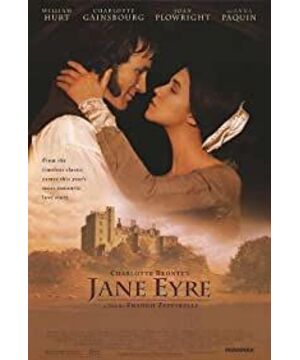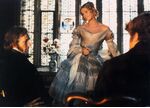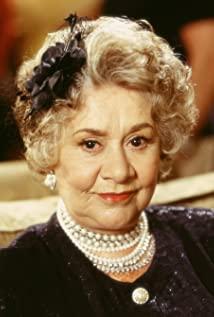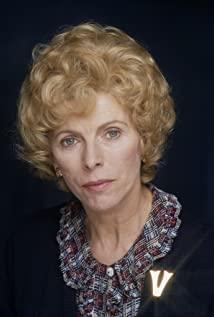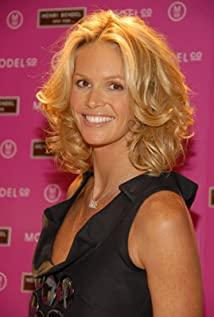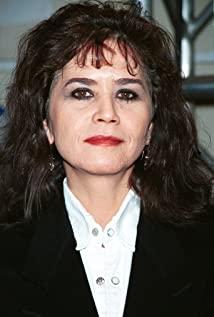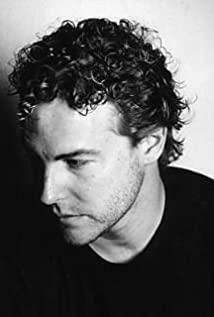If I were to pick out a novel that had the greatest influence on me among the hundreds of works I've read, I would name it without hesitation: "Jane Eyre", but this is a film review, not Book reviews, so I have to cut in from a movie perspective and go back to the old days two hundred years ago. Let's start with the bad parts of the movie. For a reader, the biggest drawback of the movie is that it is quite difficult to compress an original book with hundreds of thousands of words or even millions of words into less than 20,000 words in two hours. At the same time, it means that the movie will lose a lot of details and important plots, reduce the readability of the story, and complete the distortion of characterization. This is particularly evident in "Jane Eyre", the film is only 112 minutes long, and the second half of the book is even finished in half an hour. In terms of plot, this directly led to the incompleteness of the emotional line between Mr. Rochester and Jane Eyre, and Rochester's lack of motivation for Jane Eyre's relationship. There is this sentence in the barrage: If it is shot like this, isn't that Jane Eyre, as a governess, seducing the male host? Putting this sentence in the context of the movie really makes some sense. It is the emotional foreshadowing of the grass snake and gray line in the novel that created this taboo love, and the love between Rochester and Jane Eyre will have twists and turns, and it is not easy to meet after thousands of mountains and rivers. Because the time is too short, almost none of the really important famous scenes in the story can be shown, resulting in Jane Eyre's image with only anger and outbursts, without thinking and depth. The most typical scene is the confession of the flower gallery. In the original text, the lines of this paragraph can go down in history, "I tell you I have to leave!" I retorted, feeling a little impulsive. "Do you think I'll stay and be willing to be a human being of no importance to you? You think I'm a machine?—a machine without emotion? To be able to bear a bite of bread from my mouth, Throw a drop of the water of life out of my glass? Is it because I am poor, unknown, mediocre, and small, that I have no soul, no heart?—Aren't you wrong?—My heart is with you As rich as you are, and my heart is as full as yours! If God gave me a little beauty and ample wealth, I would make you as inseparable as I am now, and I am not with you according to custom, norm, or even of flesh and blood. Talk, but my soul talks to your soul, as if we were both walking through the grave, standing at the feet of God, equal to each other—that’s how it is!” What really matters in this passage is not Jane Eyre’s confession, But under the guidance of Mr. Rochester, the awakening of feminist consciousness in her human nature, only such Jane Eyre is the woman Rochester loves dearly, not a slave, not a vassal, not chasing fame and fortune, not lingering on luxury, but an independent individual, Ordinary but not mediocre, confident but not conceited. And the Swamp Hill and St. John's, which were completely deleted in the second half, are even more unsatisfactory and exacerbate the irrationality of the plot. Without Swamp House, Jane Eyre's inheritance in the film can only express one meaning: if women want to cross class and marry men, they can only use this way of becoming rich. This is obviously contrary to the idea of equal rights expressed in "Jane Eyre". Jane Eyre also fell from an independent image to the tide of the times of money worship. In the original book, after Jane Eyre got the inheritance, a very important move was to divide the large inheritance into three parts, one for the two cousins of the Swamp Villa, one for St. John's missionary funds, and the last one. keep it to yourself. At this time, Jane Eyre's purpose is not to make herself rich, but to show what she desires most in her heart in an even way: Affection, religion and inferiority complex. This is also the reason why the passage of inheritance has been staged countless times in the past two hundred years, but the passage of "Jane Eyre" has never fallen into the rut. The character of St. John is so important in the original book that even at the end of the novel, St. John's noble death is the curtain call. In the movie, there are no scenes deleted by the screenwriter. I think the screenwriter's ability to control the script is too weak and the ability to understand is too shallow. The role of St. John is now, it should be called the second male protagonist, if the control is not good, the plot will be ntr. But "Jane Eyre" cannot do without him, his appearance is a symbol, a symbol representing religion and absolute rationality. St. John's is actually another version of Jane Eyre, but he's more self-conscious and more determined, and this role is destined to be unlikable, especially in the context of Rochester. His proposal to Jane Eyre was almost completely unmixed with personal emotions, just for a better mission. But because of this he is very important, he taught Jane Eyre how to be herself, and added the last firewood for the thorough awakening of feminist consciousness in Jane Eyre. When he proposed to Jane Eyre, Jane Eyre heard Rochester's call (standing two hundred years later, we can know that this is the style of magic realism), rejected St. John's, and determined to go back to find Rochester, the determination to express love. The complete deletion of such a character’s role, feminism aside, Jane Eyre’s role in returning to Thornfield in the movie is alienated into a little daughter-in-law returning to her parents’ home in a fit of anger, weakening the suffering she and Rochester suffered, and diluting the experience of Jane Eyre Growing up, it's a shame. The casting of Jane Eyre actors is also a big problem. It is true that the 1996 version of "Jane Eyre" chose an extremely elegant and beautiful British actor with an authentic London accent to play Jane Eyre, who became the white moonlight of many audiences. But this is precisely the place that most deviates from the core idea of Jane Eyre. The description of Jane Eyre in the original work is "short, thin, and not beautiful", just to highlight Jane Eyre's ordinaryness and bring out the nobility and greatness of her soul. And the casting of the film makes Jane Eyre a face, and it also allows the audience to ask questions like: Why should I think that Rochester fell in love with Jane Eyre's soul? I just watched the movie and thought it was because Jane Eyre was so good-looking that Mr. Rochester fell in love with her. Of course, such problems have existed since ancient times. The most typical example is Emma Watson, who played Hermione in "Harry Potter". Hermione is still a very popular character after 20 years, but in the novel Hermione, who was not good-looking at all, freckled but smart and brave, will never come back in the hearts of book fans. Having said so much is only one or two of what I want to say. If you want a complete analysis, the number of words in this film review will be multiplied by ten times. If we analyze the feminist awareness and influence of the characters, we must continue to double it, and we need to look at it in the longitudinal direction of more than 20 novels such as "Little Women", "The Female Tenant", "Wuthering Heights", and "Gone with the Wind". To be honest, as an engineering subject I don't have that time and energy since I was born, so I'll stop writing here. I would like to use this article to commemorate my book of enlightenment: Jane Eyre
View more about Jane Eyre reviews


